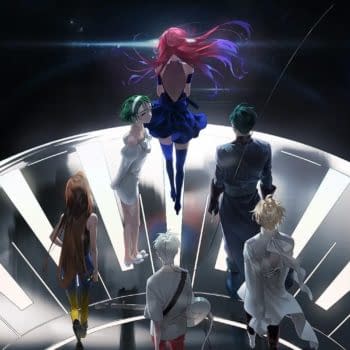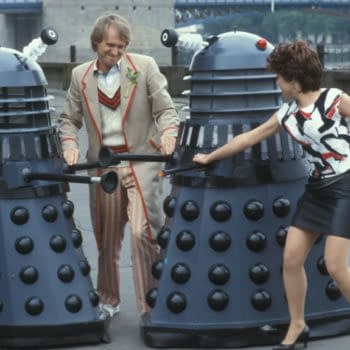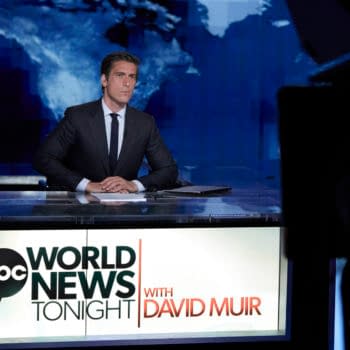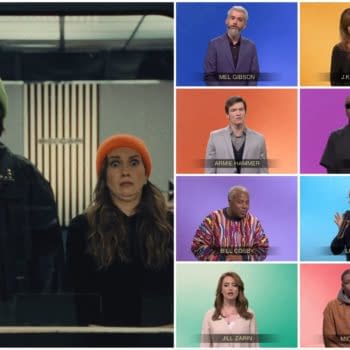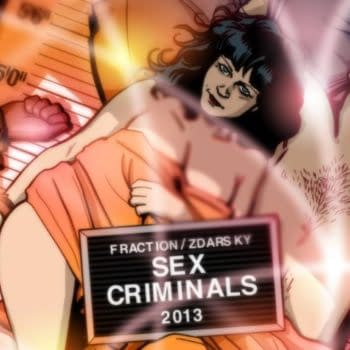Posted in: TV | Tagged: blossoms shanghai, Chinese drama, TenCent, wong kar-wai
Blossoms Shanghai: Why Wong Kar Wai Series Remains Unfinished
Blossoms Shanghai is a funhouse mirror of Wong Kar Wai's common themes and images but remains unfinished - with a final version yet to come.
Blossoms Shanghai is currently a big deal in China, a glamourous celebration of 1990s Shanghai during China's first big economic boom. It is also the first major television series produced and directed by major filmmaker Wong Kar Wai. That makes it more than just any C-drama series. Wong Kar Wai is not a journeyman director who just points the camera at actors' overlit faces, waits for them to deliver their lines, and then gets it over with. It has the most beautiful images on any TV series anywhere, every shot, every prop, every piece of clothing, every light, every angle was meticulously planned. It took three years to film the series, which meant keeping the standing sets, including that massive street lot recreating Shanghai dressed and prepped for that whole time. You could write a whole book about how Blossoms Shanghai was molded into a Wong Kar Wai project. All his common tricks, tropes, and tools are present in the thirty-episode series.
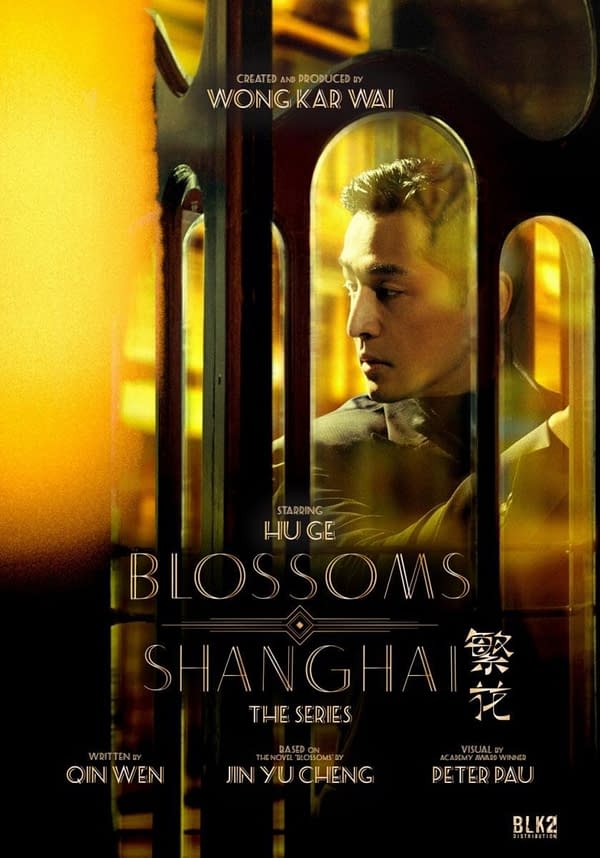
I've watched all thirty episodes of Blossoms Shanghai, and my first impressions have not changed. There's a problem with a TV series that goes on for too long, and thirty episodes where not that much happens is just too much. That is a common problem with every Chinese drama series because the broadcasters want as much airtime as possible so that they can have as many sponsors and advertisers as possible. And Wong Kar Wai is not a filmmaker who's big on plot or story. His forte is mood. The result is entire episodes that get repetitive – scenes and shots are recycled, the story doesn't move forward, characters play variations on the same scenes again, and mawkish emotional scenes ensue that go nowhere. As a result, Wong Kar Wai's beautiful images become window dressing padding out an overlong story.
At thirty episodes, Blossoms Shanghai became a TV soap opera, jumping between the grey 1960s when hero Ah Bao and the women he first met were still in school and living under the Cultural Revolution (though the oppressive aspects of that era were not overtly portrayed), to the 1990s when everyone in China experienced the culture shock of suddenly being able to strike it rich in the stock market, buying and selling companies, and in the case of Ah Bao's friends, getting rich when investors come calling to prop up their restaurants, clubs or hotels. It becomes a golden era of Capitalism. There's an implicit indictment of greed, of getting rich too fast, of flying too close to the sun and falling tragically down to Earth.
Blossoms Shanghai is a Funhouse Mirror of Wong Kar Wai's Tropes
Wong Kar Wai's common themes are in the series but muted. Ah Bao, played by popular star Hu Ge, is the central character around whom everyone's lives and stories revolve but, ironically, has less screen time than the rest of the cast. Wong's theme of a man and the women around him is here but less based on romance but on friendship and business. Each woman in his life represents a different part of his life: friendship, love, and business. The romantic slow-motion shots of characters against the backdrop of a bustling city are all over the series as if frozen in time, as if Wong Kar Wai was trying to preserve that lost dream of the past. The romantic yearning here isn't between a man and the women he couldn't or wouldn't hold onto but for the lost dream of a city. The series is full of slow-motion shots of Ah Bao or one of the women alone in a shot, walking towards or away from the camera on a golden neon-drenched street as a totemic image. The use of melancholic voiceover is also present here.
Nostalgia is the biggest character in Blossoms Shanghai, not just for a lost time, but for Wong Kar Wai's past movies – songs from his previous movies are used again to evoke their memory as well as Shanghai's past, 90s Cantopop ballads litter the soundtrack as well as a sound-alike pastiche of Ennio Morricone's melancholy theme from Once Upon a time in America that was used in his previous film The Grandmaster, and the main theme of the show is not the same as HBO's Succession as some people on social media have accused it of being, but another soundalike pastiche, created for its sense of dynamic suspense.
Is it fair to judge this series by Western standards of how a good story or TV series works?
Looking at these thirty episodes of Blossoms Shanghai is like watching over twenty-two hours of either rushes or a first assembly of scenes yet to be edited down and shaped into a good, perhaps even great two-hour movie. Some of the performances are too broad, like a TV soap; at least three performances are overly cartoonish. There are also scenes of soap opera goofiness that Wong Kar Wai probably wants to not have in the feature film version since that's not the austere arthouse vibe that Western critics have ever seen or expected of him. Then again, many of them are unaware that he was a commercial screenwriter for years before he directed his first film, and he even wrote a superhero movie in 1991, Saviour of the Soul, the year after his second film, Days of Being Wild, was released.
All of Wong Kar Wai's films have an air of being unfinished. He is known for constantly changing his mind and leaving out enough footage, sometimes completely cutting out whole storylines featuring an A-list Hong Kong star, that could make up a separate, entirely different feature film. With Blossoms Shanghai, we haven't seen the final version of the story he wants to tell. The current thirty episodes that have done so well on Chinese television and streamers are only the beginning, an assembly of nearly everything that was shot (there are probably scenes and sequences left out even from the series), with the more definitive version of the story still to come from his edit bay. Whether it's a re-edited version of the television series that might be released to viewers outside China, or a two-hour-plus feature film, or both remains to be seen. It's too early for a final verdict, and with Wong Kar Wai, no version is ever final.
For now, Blossoms Shanghai is only available on Tencent in China.





